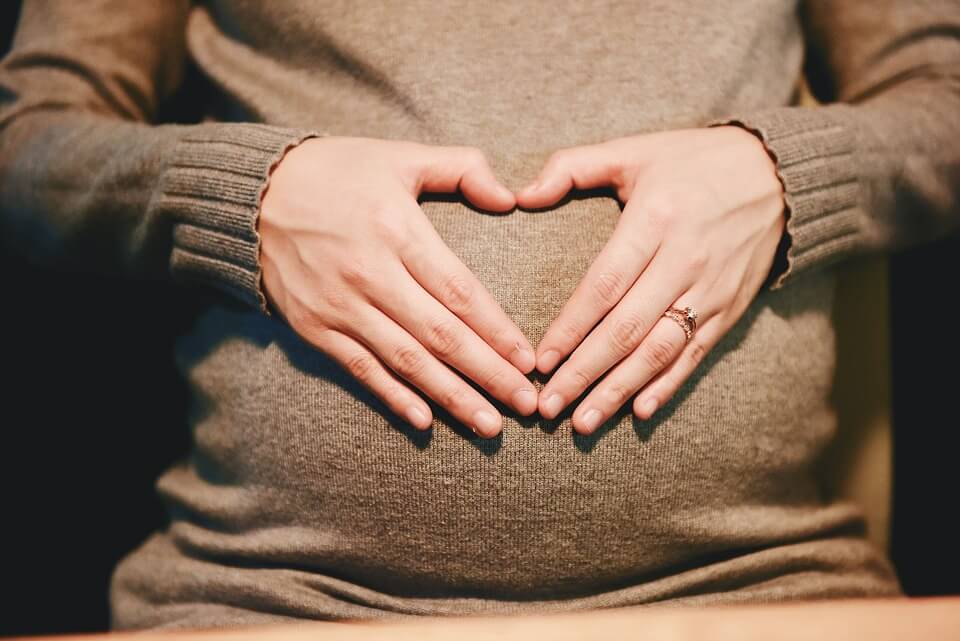
Garbh Sanskar means making the unborn child ready to face the new world, while it is still in the mother’s womb. The mother’s womb is a place where the unborn child picks up values, ethics and morality. In fact, we could say that the mother’s womb is the first school which the child attends and starts learning or preparing inside on how to face the world outside
Ancient Indian scriptures mention the name Bhakt Prahlad the son of the demon kind Hiranyakashipu who was among the most ardent devotees of Lord Vishnu. Prahlad’s deeds are mentioned in the Bhagavad Gita (Chapter 10, Verse 30) as well as in the Vishnu Puran (Book 1, Chapter 20).

Such was his devotion that Lord Vishnu had to appear in the form of the Narasimha (half man-half lion) avatar to save Prahlad from his wicked father Hiranyakashipu who wanted to kill him.
Does this ring a bell? Prahlad was born in a demon clan, then how did he possess such good qualities that Lord Vishnu regarded him as one of his favourite devotees and appeared in person to save him?
The answer is ‘Garbh sanskar’ – a series of steps taken by a pregnant woman to implant special qualities in the unborn child inside her womb.
Going back to Prahlad’s story. A few months before Prahlad was born his mother Kayadhu came to live in the hermitage of sage Narad muni where she kept chanting the mantras and listening to the stories of Lord Vishnu almost through the day. The food she ate was pure and the overall atmosphere of the ashram was very peaceful. This had such an impact that the seeds of devotion were transferred to the unborn child who became a great devotee of Lord Vishnu.

Let’s discuss another example. Abhimanyu the son of Arjun, and Subhadra the younger sister of Lord Krishna, learnt the technique on how to break the chakravyuh, a powerful military formation, which not many people haven’t even heard about, while he was still inside his mother’s womb. Unfortunately, while Arjun was explaining the way to come out, unknown to him Subhadra fell asleep. As a result Abhimanyu the unborn offspring just came to know just one part of the whole story.
During the first 12 days of the Kurukshetra War fighting on behalf of the Pandava Abhimanyu created terror in the Kaurava soldiers. However, on the 13th day of the battle, the Kauravas deliberately deceived Arjun away from the main battlefield before attempting to form the powerful Chakravyuh formation. This had a devastating effort on the Pandavas who did not know what to do without Aryun’s guidance. Seeing this Abhimanyu took the lead and attacked the Kaurava soldiers all by himself. This is exactly what the Kauravas wanted and closed the Chakravyuh formation trapping the 16-year-old Abhimanyu inside who did not know what to do. As a result, the unsuspecting Abhimanyu was overpowered and killed.
This is what Garbh Sanskar is all about. The concept behind Garbh Sanskar dates back thousands of years and has its roots in ancient Hindu texts such as the Vedas, Upanishads, and Puranas.
These two examples convey the point of how the environment in which a pregnant woman lives and the way she thinks has an impact on her unborn child. On one side Prahlad, the son of a wicked and unscrupulous demon became a good-hearted person while Abhimanyu could hear the voice of his father inside the womb and picked up many useful things while still inside his mother’s womb.
What is Garbh Sanskar?
Garbh in Sanskrit means womb, while sanskar refers to instilling or transferring positive values on the fetus during all stages of growth and development – till the child is born. Garbh sanskar is no rocket science. It is also not magic, a tantra, a mantra, or a religious ritual. The underlying philosophy behind Garbh Sanskar is that the mental and emotional state as well as the mood of the mother affects the child. Hence the endeavour as far as possible is to provide a positive, cheerful and happy environment to the expecting mother.

Garbh Sanskar is an ancient traditional Indian practice to take care of both mother and child during pregnancy. This is probably one of the reasons why even today one of the things many most mothers-in-law do after hearing about their daughter-in-law’s pregnancy is to place a picture of a smiling, chubby and fair complexioned baby boy inside their room so that the newborn baby imbibes at least some of these qualities.
The range of activities includes a balanced and nutritious diet, meditation, yoga, listening to good music, reading sacred texts, moral stories, biographies, shlokas, etc. It is believed that these activities create a conducive environment for the physical and mental development of the fetus and leave a lasting impact on the child’s health, personality, and behaviour later in life.
Garbh Sanskar presupposes the fact that the child’s mental, physical, and emotional development starts inside the womb. The mother’s happiness during pregnancy can lead to a healthy child, while negativity, anxiety, and stress can affect the child’s brain development and lead to preterm delivery.
Stages of development – preparing to the world outside

Studies have revealed that:
Unborn children undergo many changes at different stages of development inside the womb. Here are some of the things an unborn child can do inside the mother’s womb:
- Almost 80% of human brain development starts in the mother’s womb.
- By the 7th week of pregnancy, the eyes of the unborn baby begin to develop. Research suggests that fetuses may be able to detect light and dark, and respond to changes in light levels
- By the time it is 8 weeks old the unborn child starts to move inside the womb, these movements grow more aggressive as the fetus grows.
- By the time it is 18 weeks the unborn child can hear sounds, like the mother’s heartbeat and voice
- By the time it is 18 weeks, the unborn child begins to taste the surrounding amniotic fluid
- The unborn children can learn and remember information, such as the mother’s voice, and may even be able to recognize and respond to certain sounds or music after birth.
Also Read: Mother’s milk fortifier saves many infant lives
What can the unborn child do?
There have been many scientific studies on fetal development. These studies have used a variety of methods like ultrasound imaging, fetal electrocardiography, and fetal monitoring to observe fetal behaviour and study the abilities of unborn children inside the mother’s womb.
- The unborn child can move and has the ability to learn and remember
- Studies have shown that the unborn child can hear and respond to sounds from the outside world, including their mother’s voice and music.
- Exposure to loud music may cause stress in the unborn baby and impact its development.
- What the mother experiences during pregnancy — what she sees, hears, smells, and thinks, can influence fetal development.
- The mother’s emotions and mood during pregnancy can affect fetal development. Studies have found that maternal depression during pregnancy is associated with an increased risk of behavioural and emotional problems in children.
- The unborn child can like or dislike certain tastes or smells depending on what the mother eats. Hence pregnant women should eat sufficient nutrients like folic acid, iron, and calcium
- Prolonged or severe maternal stress can increase the risk of complications like preterm birth and low birth weight as well as increase the risk of behavioural and emotional problems in children.
- Environmental toxins, such as lead and mercury, can harm fetal development and increase the risk of birth defects and developmental problems.
- The health of the mother during pregnancy can have an impact on the child inside her womb
- Mother’s lifestyle such as smoking, drinking, and drugs, can harm fetal development and increase the risk of complications
- The sense of smell begins to develop early in fetal development. The mother’s exposure to strong smells, such as perfumes, cleaning products, or cigarette smoke, can affect fetal development and increase the risk of respiratory problems.
Also Read: 1st baby boy born in ‘all girls village’ of Poland after one decade
Overall, the mother’s sensory experiences and emotional state during pregnancy can have a profound impact on the growth and development of the child inside her womb. Hence pregnant women are encouraged to practice healthy behaviours and avoid exposure to harmful substances or environments to promote the best possible outcomes for their unborn baby.

